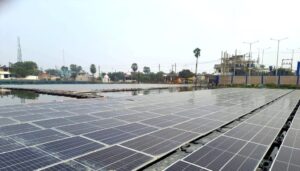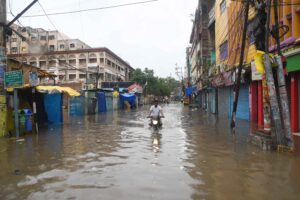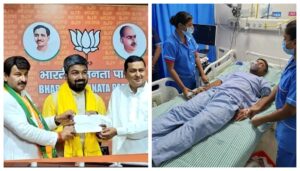CIMP and UNICEF Host Landmark Youth Climate Conclave in Bihar
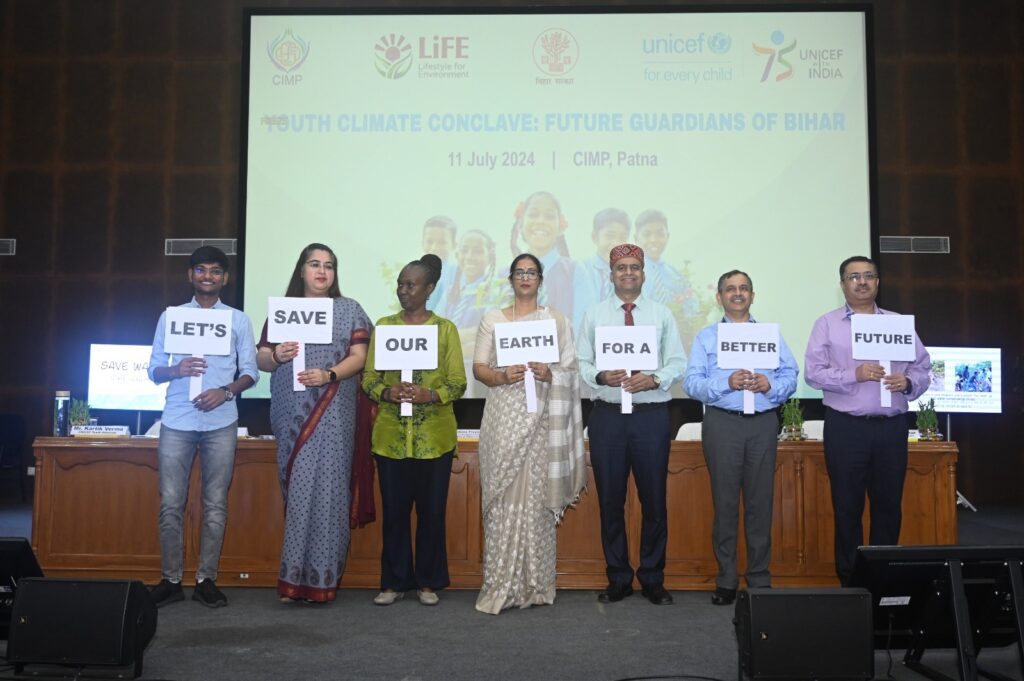
Secretary Announces Plans for International Youth Conclave for South Asian Countries
Patna: The ‘Future Guardians of Bihar: Youth Climate Conclave,’ organized by CIMP’s Centre for Climate Resilience, Disaster Risk Reduction, and Water Sanitation & Hygiene (WASH) Research and Education in collaboration with UNICEF Bihar, marked a significant milestone in the state’s fight against climate change. The event brought together over 500 youth and adolescents from various schools and colleges, including social media influencers, alongside government officials, development partners, and civil society organizations.
In her keynote address, Bandana Preyashi, Secretary, Department of Environment Forest & Climate Change, said that climate change impacts extend beyond weather and water encompassing health crises, biodiversity loss, and economic disruptions. Climate action is not just policy; it’s a movement where the role of youth to combat it, is pivotal. Individual behavioural changes – from energy conservation to reducing plastic will contribute to mitigation efforts.
She added that Bihar is the first state in the country to implement a green budget. The department planted 4 crore samplings in the previous financial year and aims to plant 4.5 crore saplings this year. Urban greenery is being enhanced through ‘Nagar van’ parks, or green parks, which will act as urban lungs.
She also stated that the department wishes to host an international youth conclave in collaboration with UNICEF for South Asian countries. She called upon everyone to work towards a future where climate and economy thrive together, shaping a sustainable tomorrow for Bihar and beyond.
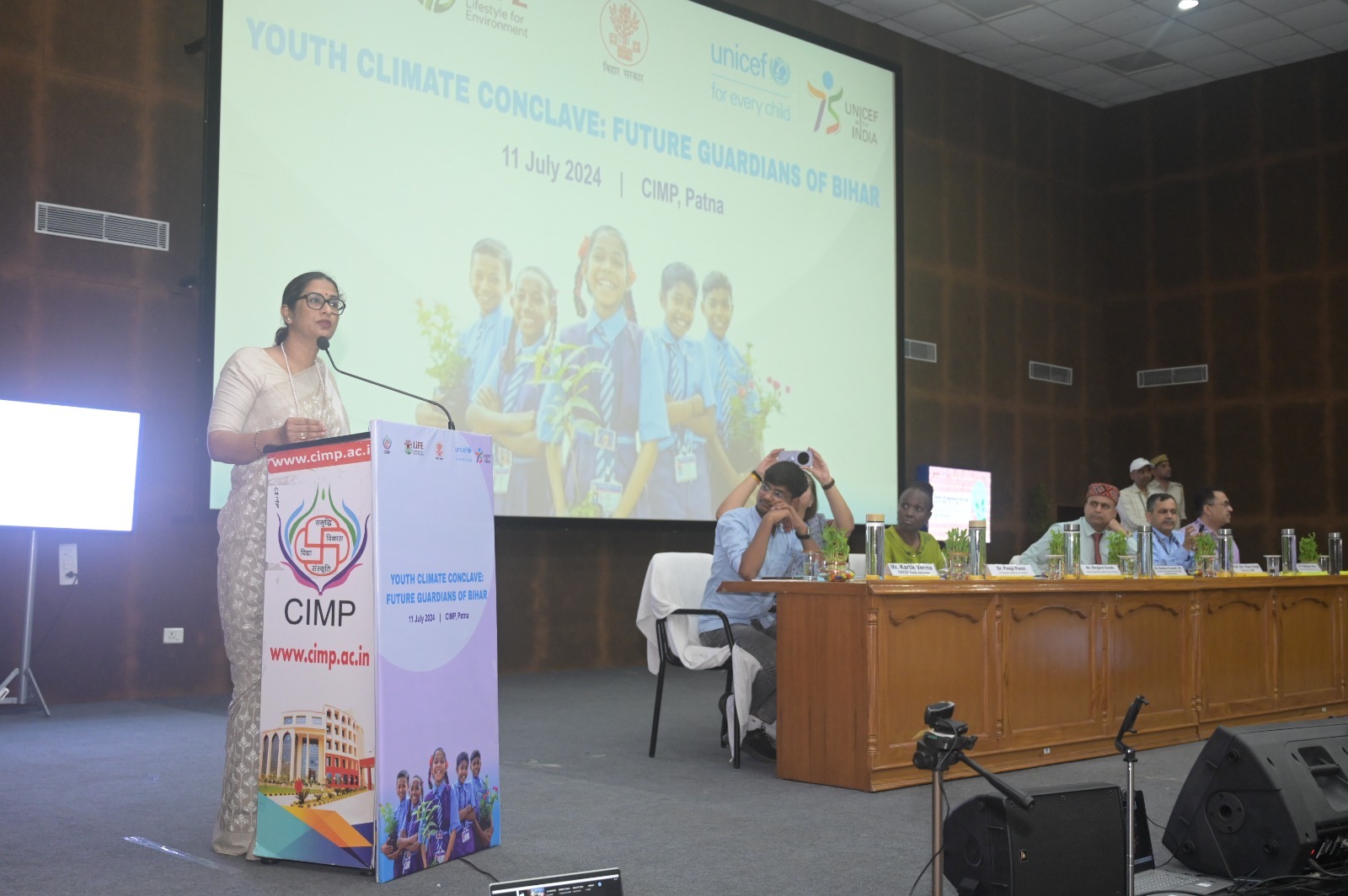
Margaret Gwada, Chief of Field Office, UNICEF Bihar, addressed the conclave, celebrating UNICEF’s 75 years in India. She highlighted UNICEF’s Children’s Climate Risk Index, which ranks India 26th among 163 countries, indicating severe climate and environmental risks for children. Gwada stressed the importance of empowering children and youth as agents of change, advocating for their active participation in environmental policy decision-making. She stated that the conclave aimed to leverage youth creativity, foster a sense of ownership and accountability, and adapt strategies based on their needs and priorities.
Prof. Rana Singh, Director of CIMP, spoke about the negative implications of climate change, from water scarcity to chemical contamination, and emphasized that the responsibility of transforming a developing nation into a developed one rests on the youth’s shoulders. He stressed that the actions taken today are crucial to averting the spectre of global warming.
Nirma Bora, CCES Consultant at UNICEF ICO, presented on the crucial role of youth in climate action, followed by showcases of youth-led initiatives from Odisha, Maharashtra, and Karnataka. These initiatives demonstrated effective strategies for water conservation and green skills development. An engaging session on social media campaigning informed participants about digital advocacy tools and techniques to combat climate change.
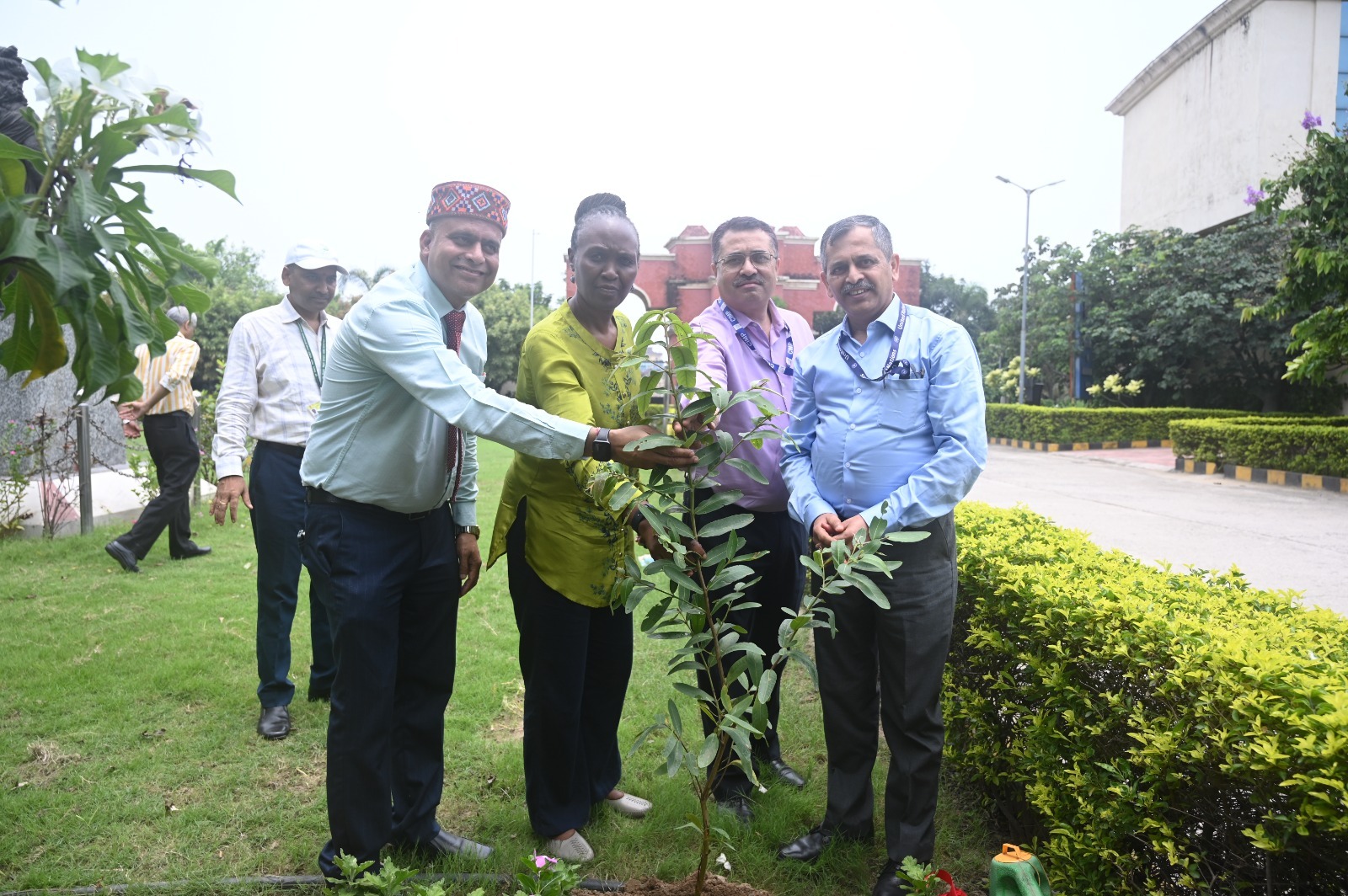
UNICEF Youth Advocate for Climate Change, Kartik Verma, shared insights into his climate advocacy activities, emphasizing the need for immediate youth action to mitigate climate change impacts. He urged the youth to seize the moment and create a sustainable future.
The conclave successfully marked the beginning of a series of initiatives aimed at empowering young people to address environmental challenges and promote sustainable practices. With the collective commitment of youth, government, and civil society, Bihar is poised to make significant strides in combating climate change and ensuring a resilient future for its communities. The energy and enthusiasm of the participants offer a beacon of hope for a more sustainable future.
The event concluded with a call to action, urging participants to become active agents of climate change and environmental sustainability. Kumod Kumar, Chief Administrative Officer at CIMP, delivered the vote of thanks. The event was attended by officials from UNICEF, PHED, and Jal-Jeevan-Hariyali Mission, as well as NSS volunteers, NYKS, and CSO representatives.

